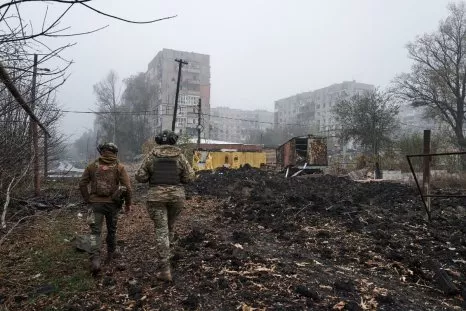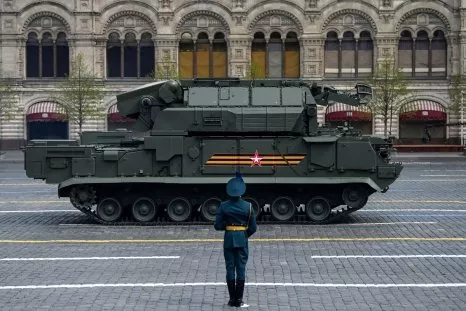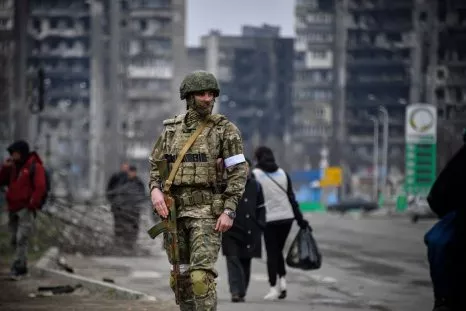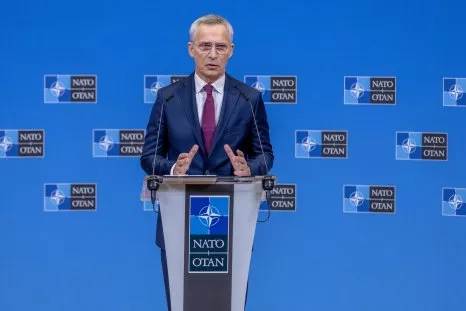US Official Reveals Drastic Punishment for Russia
The United States seeks to cut Russia's oil and gas revenue by 50 percent by 2030 as punishment for its invasion of Ukraine, a top government official said in an interview published Thursday night.
U.S. Assistant Secretary of State for Energy Resources Geoffrey Pyatt told the Financial Times that Washington hopes sanctions on oil and gas revenue will hinder Russian President Vladimir Putin from any future military aggression on other countries.
The U.S. was among the multiple countries that imposed severe economic sanctions on Russia following Putin's invasion of Ukraine in February 2022. Those moves included placing a price cap on Russian oil exports.
While these actions initially strained Russia's economy, the Kremlin has boasted that deals with India and China have helped the country avoid a large financial offset while also continuing to fund Putin's war.
In his comments to the Financial Times, Pyatt indicated the United States plans on applying economic pressure on Putin until Russia's oil and gas revenue is sliced in half.
"This is something that we're going to have to stick to for years to come, as long as Putin persists in this war," Pyatt, who previously served as an ambassador to Greece and Ukraine, said.
Newsweek reached out to Pyatt's office and the Russian Ministry of Foreign Affairs via email Friday night for comment.
The Financial Times noted that the Kremlin has managed to evade many of the restrictions countries have placed on its oil industry by operating a "shadow fleet" of vessels. Due to the ownership of this fleet being obscured, Russia has managed to sell oil and gas at prices above the price cap.
But Pyatt told the newspaper that the U.S. has been looking into "ways to make that shadow fleet less effective."
Since the start of the war, Russia has earned around $600 billion in fossil fuel exports, according to estimates by the Helsinki-based think tank Centre for Research on Energy and Clean Air.
Pyatt said the Biden administration still believes the sanctions placed on Russia has damaged the Russian economy and that additional moves could continue to strain Putin's financial resources.
"My colleagues at the Treasury who lead on this are looking very hard at the question of how do we ensure the continued effectiveness of this policy," Pyatt said.
He added that damaging future revenue for Russia matters as much to Washington as hurting Putin's current economy.
"That has enormous geopolitical implications in terms of how the Kremlin is able to behave internationally and Russia's ability both to use its energy as a strategic asset but also the Kremlin's ability to continue engaging in revanchism against its neighbors," Pyatt said.
The International Energy Agency, Pyatt added, believes Russia's oil and gas exports could fall by at least 40 to 50 percent by 2030 if Western sanctions continue.
"We're going to do everything we can to help make that true," Pyatt said.
Disclaimer: The copyright of this article belongs to the original author. Reposting this article is solely for the purpose of information dissemination and does not constitute any investment advice. If there is any infringement, please contact us immediately. We will make corrections or deletions as necessary. Thank you.





